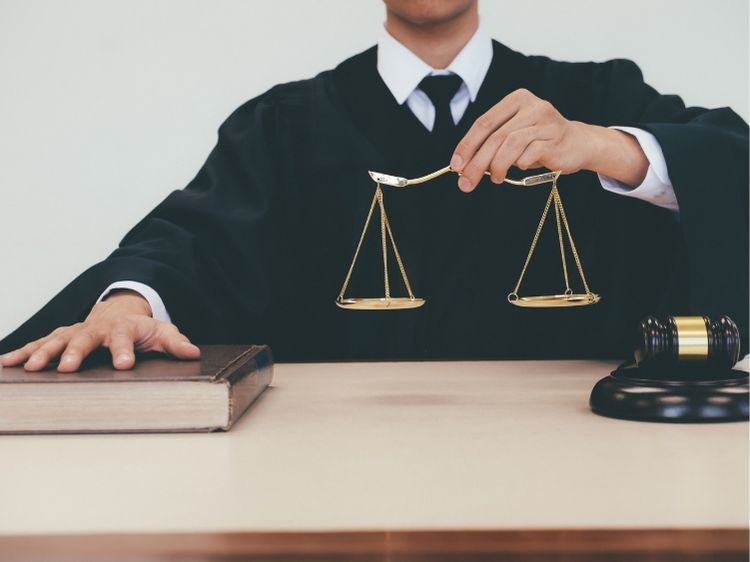Criminal Trespassing is a lawful crime in Georgia that can result in serious consequences for those accused of illegally accessing or staying on property belonging to another. It doesn’t matter if it’s private homes, commercial space, private residences, or government-owned land; Georgia laws define criminal Trespass in such a way that leaves no space for confusion. It is vital to know this statute so that property owners and people can avoid legal consequences and comply with the state’s laws.
What Constitutes Criminal Trespass Under Georgia Law?
Georgia law prohibits criminal Trespass. It is defined under O.C.G.A. SS 16-7-21. This law states that someone is guilty of criminal Trespass if they enter a property belonging to another person without permission or stay there even after being requested to leave. The law goes far beyond mere access and covers acts that cause harm or disrupt the use of the owner’s property. Anyone can be convicted of criminal Trespassing for one of these acts:
- Invading a property without permission
- Staying on the premises following being told to leave
- The intention to damage property in a way that is less than $500
- Interfering in the usage and enjoyment of the property of someone else
In certain situations, people can believe they have the right to stay or enter a property. However, should the owner or legal occupier revoke the permission, remaining on the property can result in legal repercussions.
Criminal Trespass Vs. Burglary: Understanding the Difference
Although both criminal Trespass and burglary involve illegal access, Georgia law makes a distinct distinction between them. The latter, a more serious crime, requires an intention to commit a crime or theft on the premises. On the other hand, criminal Trespass doesn’t require any intention to steal or commit a crime. Instead, it concentrates on illegal entry or actions violating property rights.
In this instance, someone who goes into a house with the intention of stealing could have a case of burglary, and those who refuse to leave home after being warned might be subject to charges of criminal Trespassing. The consequences for burglary are much more severe than Trespass, which makes the distinction crucial in legal instances.
Penalties for Criminal Trespass in Georgia
According to Georgia law, criminal Trespass is categorized as a misdemeanor offense. Even though it’s not a crime, the consequences could still be severe. If found guilty, a person could face as long as 12 years in prison, a fine up to $1000, or both. In addition, a judge could sentence a person to community service, probation, or restitution for property damage in the case of Trespass; the severity and extent of the sentence will depend on various aspects, including the criminal record of the defendant and the circumstances surrounding the incident. Courts can issue protection orders to stop further incidents if the Trespass is related to a domestic dispute.
Defenses Against Criminal Trespass Charges
If someone is accused of a criminal violation in Georgia, they could have legal defenses that can be used to contest the allegations. Some common defenses include:
- Absence of Intent: If a defendant was unaware that they had access to the property illegally, and they claim that there was no intention to violate.
- Missing identity: In some cases, the defendant may not have been the one who committed the offense.
- Notification of Entry: If the property owner didn’t provide adequate information about the fact that access was not allowed, the defendant could contest the claim.
- Consent If the suspect was granted permission to stay or enter the premises, the case may not be able to stand in court.
It is crucial for anyone who is facing a criminal trespass case to consult with a lawyer to review defenses that could be available and make sure your rights are safeguarded.
Impact of Criminal Trespass Convictions
A conviction for trespassing in the criminal justice system could have long-lasting consequences beyond immediate sanctions. A misdemeanor conviction can be recorded on a criminal record and could impact future opportunities for employment or housing applications and other aspects of daily life. In some instances, individuals could be eligible to apply for a restriction on their record (expungement) to restrict access to their criminal history. However, this isn’t automatic and requires approval from the court.
For repeated offenders, a series of criminal Trespassing could result in harsher penalties and more significant scrutiny from police. Anyone frequently facing charges for these violations is advised to seek legal counsel to avoid recurring legal trouble.
Preventing Criminal Trespass Incidents
The best way to avoid criminal trespassing charges is usually to know property boundaries and observe the property owner’s rights. If you are attending a social gathering, going to businesses, or entering public spaces, visitors must be aware of signage and instructions given to access properties. If in doubt, obtaining explicit permission before entering private property will help avoid miscommunications that could result in legal enforcement.
For homeowners who want to take proactive steps to stop trespassers from entering is also advantageous. Using marked signs or secure fences and warnings in writing will deter unauthorized people from entering and offer legal protection if a problem occurs. Surveillance cameras and security equipment can assist in recording incidents as evidence should legal action become required.
Conclusion
Georgia Criminal trespassing under Georgia law is a grave crime with legal penalties, even if it is classified as a misdemeanor offense. Knowing what constitutes Trespassing, possible penalties, and available defenses will help people avoid legal troubles and safeguard their rights. If you’re an owner of a property seeking to block entry by unauthorized persons or someone facing criminal charges, being aware of the law is vital to managing these situations efficiently.







